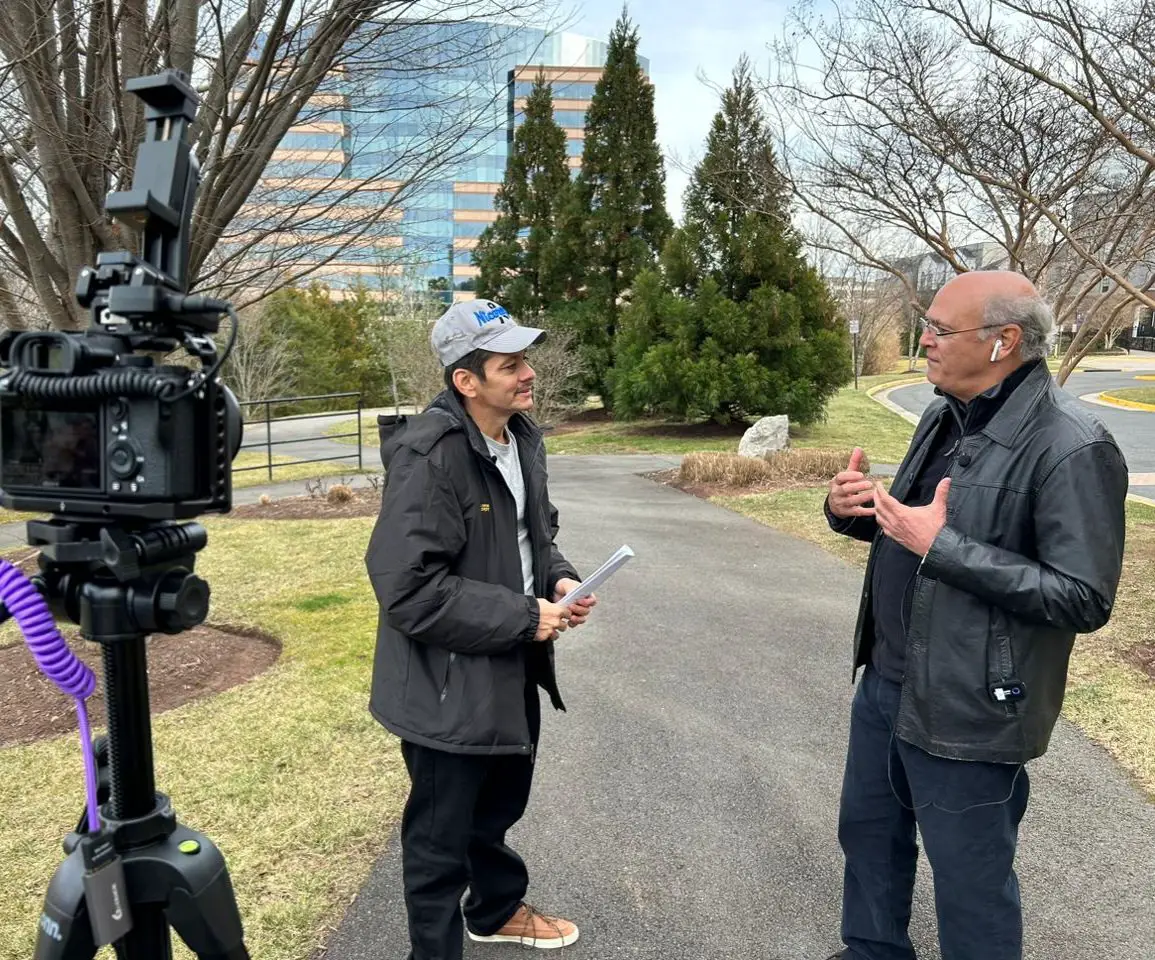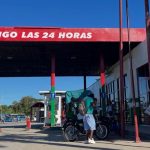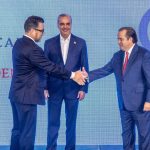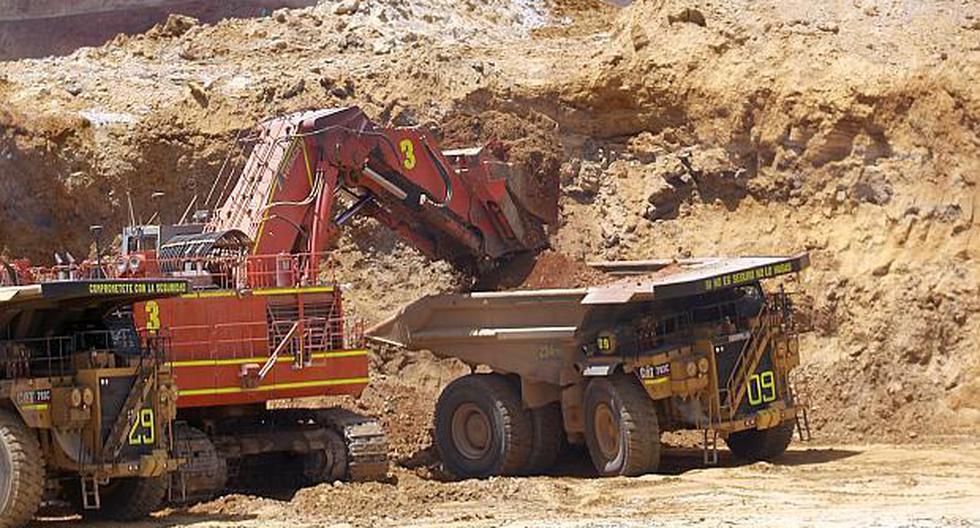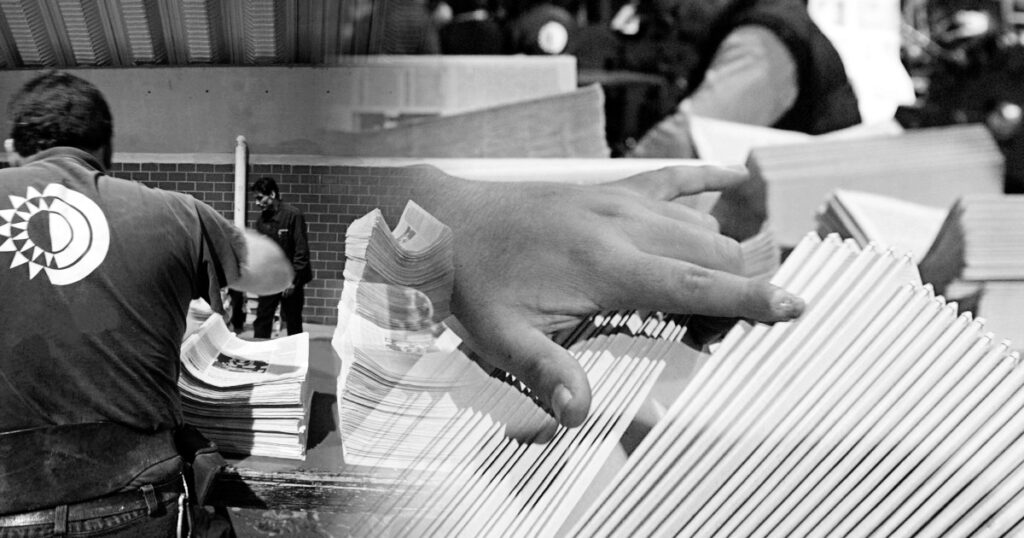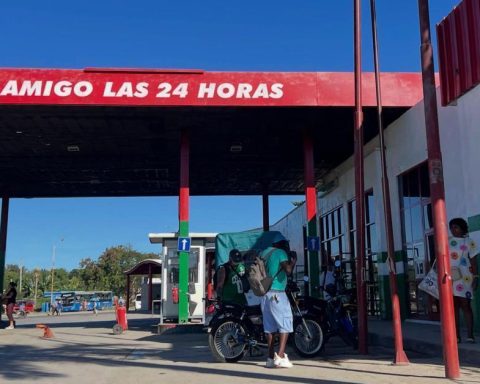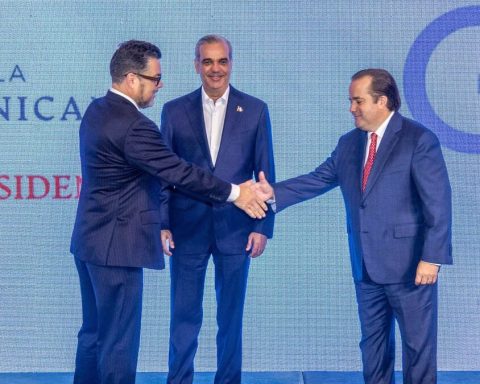The aged and thin face of the leader of the Peasant Movement and former candidate for the Presidency, Medardo Mairena, testifies to the cruelty that he experienced while being locked up —for the second time— in one of the prisons of the regime of Daniel Ortega and Rosario Murillo. He is one of the political prisoners released and exiled with whom the regime has been most merciless and despite the fragility of his body, he assures that “today more than ever” he is strengthened.
Mairena was not only deprived of his freedom but, for 14 months, he was kept in a punishment cell where he could barely breathe. There “the toilet service is like breathing and then one absorbs the dirt. That was complicating me too much (health), so I said: ‘may it be God’s will’ and I went on a hunger strike”, he recalls.
Also, during the time he was in prison, he was subjected to long interrogations in which “there was not a single interview in which we were not asked questions related to the United States.” Country to which he was finally exiled on February 9 and where he hopes to regularize his immigration status and continue working to restore democracy in Nicaragua.
He claims to be happy for having “come out of hell” where he was held, but sad at the same time for having been banished from Nicaragua. However, in this interview that he gave to CONFIDENTIAL He stresses that patriotism is “in his blood.”
This has been your second imprisonment under the Ortega-Murillo dictatorship, first you were in the old Chipote, then in hell in the Modelo prison and now in the new Chipote, also in a punishment cell. How did you live this second imprisonment?
It is unfortunate to know how much hatred the dictatorship has manifested against me and against other people who were also in punishment cells. They kept me for more than 14 months, the conditions in those cells are extremely complicated.
What is a punishment cell in El Chipote?
A punishment cell is where they keep you isolated. You only see the four walls on the sides, concrete above and concrete below, the door is a sheet (of metal) where there is a small window that can be less than this (a sheet of paper), the food passes there. But, also, they had us with that window closed, totally isolated, unable to talk to other prisoners. In the event that any prisoner spoke and they found him, then he was punished. They suspended food, that was the punishment, sometimes it was the (lack of) medical assistance or they took away some things that our family had been bringing us, such as drinks, water, things like that were taken away as punishment and pressure measures. There was always someone who was in front of the door saying you shouldn’t talk, keep your voice down, they wouldn’t let you pray, they wouldn’t let you pray, obviously we had to do it in silence.
How many months were you in those conditions?
14 months. When I saw that I was getting sicker every day, I made the decision to go on a hunger strike because I couldn’t stand being in that cell anymore. Inside, the toilet has a kind of breath and then one absorbs the dirt. That was complicating me too much, so I said: “May it be God’s will” and I declared a hunger strike. After three days, luckily and thank God, they took me out of that punishment cell and transferred me to a cell with better conditions.
They interrogated you, they accused you, what did they ask you during the interrogations?
What they always asked us, and I have listened to many people, was what did you go to the United States to do? Did you go to ask for sanctions then? Things, which never really happened like: How much funding has the United States given you? Who are you supporting with that money? What did you intend to do with that money or what did you do? There was not a single interview in which we were not asked questions related to the United States.
When you were captured, you were one of the opposition pre-candidates for the Presidency. Was the objective of this imprisonment, among other things, to annul the electoral competition and imprison all political leaders?
I believe that Ortega had been preparing for a long time to perpetuate himself in power and create a single party, which is what he has been demonstrating lately, although his own base has crumbled, even so, he continues to be stubborn about his pants, about his pistols, remains in power regardless of the political cost he has to pay, disregarding the human rights of each of the Nicaraguans who have been denouncing the violations of his regime. What he did was remove himself from the competition because he knows that he has no sympathy with the people and he was going to lose them in elections with us and what he did was imprison us so as not to have competition.
Why do you say that the political base of Ortega’s Sandinismo is weakening, are you talking about the peasant base or the base in the cities?
I would rather say in the cities because the peasant base has hardly existed. For example, in the territories where I live, those (peasants) were disappointed many years ago by the law that was made to expropriate our properties to build a supposed canal through Nicaragua, since then we have been demanding the peasants’ vindication and already these heights were disenchanted.
What has been seen are cases of some officials who have deserted and had to emigrate, others also went to jail. It is seen that many officials stay because they need to bring food to their family, it is understandable, hopefully to stay there they do not have to make mistakes, as many have made by fanaticism, such as committing crimes against humanity. But it is seen in the faces of some civil servants who are actually compromised because they have no other way to survive, it is understood, but there are also other people who are very fanatical and those are the ones who have been in charge of the crimes of lesa humanity.
In your first incarceration you were released from prison as a result of an automnesty that the regime imposed, now you have been released and exiled to the United States. How did you live that moment, how did you find out that this could happen?
I never really knew. The day they came to take us out, they arrived around 11 at night with the clothes that they had asked our families to take us (in December 2022) and they put them on us. They never told us where we were going, or what was going to happen. Later they put us on the buses, they told us “don’t ask where they are going because we don’t even know”. Since we left the North Highway we thought it was a bad sign, possibly they had the idea of moving us to Infiernillo, but when we were going in front of the airport we saw that the buses turned to the right, they entered from behind the airport. So, we saw that it was a good sign, a good sign because even if they deported us from our country it was leaving the hell where they had put us. For us it is quite a mixed feeling, we are happy to be out of prison, but it is also very nostalgic to know that we were deported from our own country, that they have been abused to do so. Obviously it is our homeland, we should never have been deported from our country and although for him (Ortega) we do not exist, we are not interested in what he knows or what he wants or does not want, there are more than 6 million Nicaraguans who know that we are Nicaraguans and who know that we were born in that country and that patriotism is in our blood and we have shown it.
Did you have any contact with the other compañeros in the leadership of the Campesino Movement who were imprisoned in El Chipote in prison or did you meet them again on the plane?
In the case of Pedro Mena, on the day of the trial, because they gave us the same trial, it was the only time I saw him, then I didn’t see him again until on the plane when we were coming here. In the case of Don Freddy (Navas) I saw him about three times, but I was never able to be close to any of them, I was never able to share with them, exchange absolutely nothing.
How do you see your future as a prisoner released for the second time, the future of the dictatorship, the future of Nicaragua?
The future of Nicaragua at this moment unfortunately depends, I suppose, on there being a negotiation. Possibly, it is what I believe, that is why we are here. We hope that this negotiation is maintained, that it is on the right path so that we can achieve the democratization of Nicaragua, the freedom for our beloved Nicaragua, that we can return for our family, we can return because we love Nicaragua and that we —as Nicaraguans— give us back our human and constitutional rights within our own country, because it is the homeland where we were born.
In your first prison term you went out with other political prisoners to the political struggle, at this moment, have you had time to think about what your role is?
We haven’t had much time to talk about politics because obviously our family is a priority right now, our health is what we need and recharge our energies to continue. What I am sure of is that from my trenches I am going to continue fighting for the freedom of Nicaragua, from my trenches I am going to continue together with the people, who are a humble people who need us to continue united in a single voice for freedom and for the democratization. One of my desires has been to demand the rights of peasants, not only so that their human and constitutional rights are respected, but also so that we can enjoy the development that should come to those territories.
How do you feel physically, emotionally, mentally since prison leaves wounds, leaves scars, plus you look quite thin?
As you can see, I lost 81 pounds, but even so, God has given me strength, I don’t have any major health problems, I am not hypertensive, and today more than ever I feel strong, thank God and also for feeling that gesture of true hug from many Nicaraguans from outside and inside the country. We do not feel alone, the only ones who obviously do not like us are the (ruling) couple who have been carrying out these atrocities.
I want to take this opportunity to thank God, and also thank the Church that bravely stood up to continue denouncing, in the end many of them have been sent to (prison), as is the case of Monsignor (Rolando) Álvarez who unfortunately continues to the dungeons.
He was sentenced to 26 years in prison for alleged conspiracy.
Imagine. Everyone knows that religious leaders do not aspire to power, the only thing they are doing is their work as children of God, bringing the bread of knowledge to each of the citizens and they are not involved in things that (to us) ) are trying to involve us, which we all know are lies. We have always been innocent and we have shown Ortega that we are peaceful people. What we have tried to avoid is that the sad history of decades ago happens again, the wars, the bloodshed that brings so much mourning and pain… We do not want violence, we want to inherit our children, our grandchildren, the new generations, a Nicaragua in freedom; where there is democracy and that they can enjoy that freedom and that they do not have to go through this misfortune that we have gone through.
